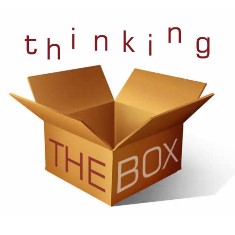Browse Blog Categories
- General (90)
- Business (94)
- Business Coaching (71)
- Business Management (97)
- Business Systems (25)
- Entrepreneur (71)
- Executive Coaching (34)
- Family Business (83)
- Leadership (99)
- Management (91)
- Marketing (16)
- Profitability (19)
- Sales (18)
- Speaking Topics (5)
- Success In Business (97)
- Team Building (41)
- Time Management (3)
Janna's Blog
 If money were no issue, how would you spend your time? Would you get up and go to the same job each day? Change jobs? Would you sit around and watch TV? Would you give more to the community? Spend more time with family?
If money were no issue, how would you spend your time? Would you get up and go to the same job each day? Change jobs? Would you sit around and watch TV? Would you give more to the community? Spend more time with family?In the past few weeks there have been a number of articles and social media posts regarding retirement. Most likely the frequency isn't up, yet my awareness has been heightened. I have seen comments by those who say that they never plan to retire, that retirement is the biggest mistake they have made, or that they fear they can never retire due to finances.
To me "retirement" is one more step on my journey through life. Retirement is defined by Wikipedia (You know the internet is always correct!) as "the act of leaving one's job and ceasing to work." That is a horrible definition. Let's have some fun in redefining the concept of retirement.
Retirement isn't:
- Ceasing to work (Work is part of life. Ceasing to work is called death.)
- A time to check out of life
- A time to sit on my rocking chair and do nothing
- An absence of thinking
- An absence of being involved with passions or interests
- An absence of facing life's challenges
That time in life when you decide that you can reap the results of years of planning and can have the independence you desire can be called retirement, but it shouldn't be defined as Wikipedia has coined it. It takes years of preparation.
Retirement is:
- No different than running a business - it takes planning and consistency.
- Starting to plan as early as possible - preferably in our 20's. Remember Stephen Covey's quote: "Begin with the end in Mind."
- A time that allows us true freedom to:
- Start a new venture
- Work in the same job that we love
- Mentor those in younger generations that are craving the leadership skills and knowledge that we posses
- Spend more time with family and friends
- Travel if desired
- Give back to the community in ways that couldn't easily be done while working full time and/or raising a family
- Whatever else comes to mind
I have a friend that owns a business that has been very profitable and an ongoing concern. He also has another business, more of a ministry, that focuses on the needs of others. This ministry is one that could take him around the US and the world helping people in so many ways due to the needs he has identified. He doesn't want to "retire;" what he does want is to transition to this other business which excites him and has great upside potential. What he does want is the financial independence to make different choices.
My friend, like many of us, wants to pick the ending of one season, the beginning of another, and the choice in transition. Retirement should be another season, another beginning, and another transition just like many we have made before. The question is: What are you doing to plan your transition and how does that impact the decisions you make today?
Part 2 of this article discusses how planning is critical to creating the retirement we desire. Look for it here next month.
(Without one you can die!)
 The best way to fail at a business is not having a plan; the best way to wander through your career and get stuck in a rut is by not having a plan; and--you guessed it--the best way to get lost on a mountain is not having a plan.
The best way to fail at a business is not having a plan; the best way to wander through your career and get stuck in a rut is by not having a plan; and--you guessed it--the best way to get lost on a mountain is not having a plan.There are tools that help us stay on-track in life. On the trail it is a compass, a map, and possibly even a GPS that, used in tandem, will generally keep you on course. For example, you can be in the woods with only a map and still get lost, but add in a compass and you'll probably find your way. Because the magnetized compass needle always indicates magnetic north, you'll consistently know how to find this direction even if you go in circles. So using a compass in conjunction with your map keeps you adapting to stay on the right track.
Your business and career plan, if you use it, accomplishes the same purpose. First, you step back from the day to day environment to create the plan of what you want to accomplish and how you'll do it. On a regular basis - at least monthly - you measure your actions against the detailed steps you of your plan. If you are straying off course, you step back again to review your plan, realign your focus, and redirect your steps.
How does this relate to business? Without a plan, you risk going off track. Are you heading into new sales situations, new markets, and new projects without doing your homework? Are you resting on the knowledge you gained last year or five years ago on how to sell? Did your education process stop the day you graduated from high school or college? Are you finding the new employee that was just hired is getting the better projects, the better office, and the better promotions?
The process of learning, growing your skills, and adapting to new environments are critical tools to stay on track and reach your goals, whatever they are.
One of my clients sells cars. This process is dramatically different today than it was even five years ago. Fifteen years ago, everyone cared about what was “under the hood.” What was the engine like; how did it run? What was the torque? (I learned from my advertising client that people used to care about torque. Yes, I had to look it up – so you can, too, if you're interested.) Today, anyone selling cars better know how to use a smart phone. They better know how to connect it to the car. They better be able to look up the competitor information on that phone and discuss it out on the lot. To close the deal, they better be able to talk accurately to the customer who has done the research and possibly knows more than them about the car.
When hiring a new sales person, the car dealership cares more about whether that person can understand and discuss the car's technology versus knowing how the engine runs. If you are an auto sales person who's selling the same way you did ten years ago, there is a good chance that your job might be in jeopardy. And it's not about age. My client has an 82-year-old sales person that is very successful. He owns a smartphone and knows how to use it. He created a plan and has learned how to adapt. Have YOU?
 What is critical thinking? There are multiple definitions, some very complex, yet the simple definition is not just the possession of skills but the ability and habit to continually use them in new and different ways. Put another way, critical thinking means using the normal to create and then apply the new.
What is critical thinking? There are multiple definitions, some very complex, yet the simple definition is not just the possession of skills but the ability and habit to continually use them in new and different ways. Put another way, critical thinking means using the normal to create and then apply the new.Over the last five years I have often challenged clients and workshop attendees on their critical thinking skills. These are bright, qualified, skilled and hardworking business owners and executives who have accomplished significant challenges in their careers and business. They have worked through significant challenges and look at the world in ways that many of us don’t comprehend.
Yet, when posed with out-of-the-box types of problems they find it challenging to come up with not simply a good answer, but with that “best” answer. I wonder if the day-to-day challenge of running their business environments has reduced their ability to be creative critical thinkers.
I had the opportunity to be the guest speaker for a high school leadership training class. There were about 30 students from about five high schools. It was a fun time of encouraging them to consider their classroom and personal goals for the next school year. Don’t I wish I had that opportunity when I was 17! (But that is another topic.)
I presented them with two out-of-the-box scenarios and was looking for that elusive "best" answer. When presenting similar scenarios to business owners, they throw ideas at me for a couple of minutes – and then I give them the “best” answer. So it amazed me that within about 20 seconds a number of the students had thought of the “best” answer for my hypothetical situations.
I was surprised, yet it made me extremely hopeful. For all the criticism of today’s youth and millennials, maybe their critical thinking skills are a lot better than we think. Maybe their fresh way of looking at things is that advantage we need in our business. We do need to stop, listen and allow them the time to say things – even things that we may not fully understand.
Did we somewhere along the way - in running businesses, fighting the daily fight of life - stop thinking critically? Have we stopped being creative in our thought processes and now default to what is easy or normal? We believe we are the harder working and wiser generation, but we seem to have stopped using any critical thinking skills that are outside our comfort zone.
My challenge to you: Change your thinking process--start thinking like an 18 year old. It might revolutionize your business, you just might have some fun, and you'll ultimately prepare your business for the growth that comes with a new generation of leaders.
Ready to get started
Call or contact Janna Hoiberg online to schedule a free, initial consultation.
There is no obligation and you're guaranteed to learn a few new things about your business.